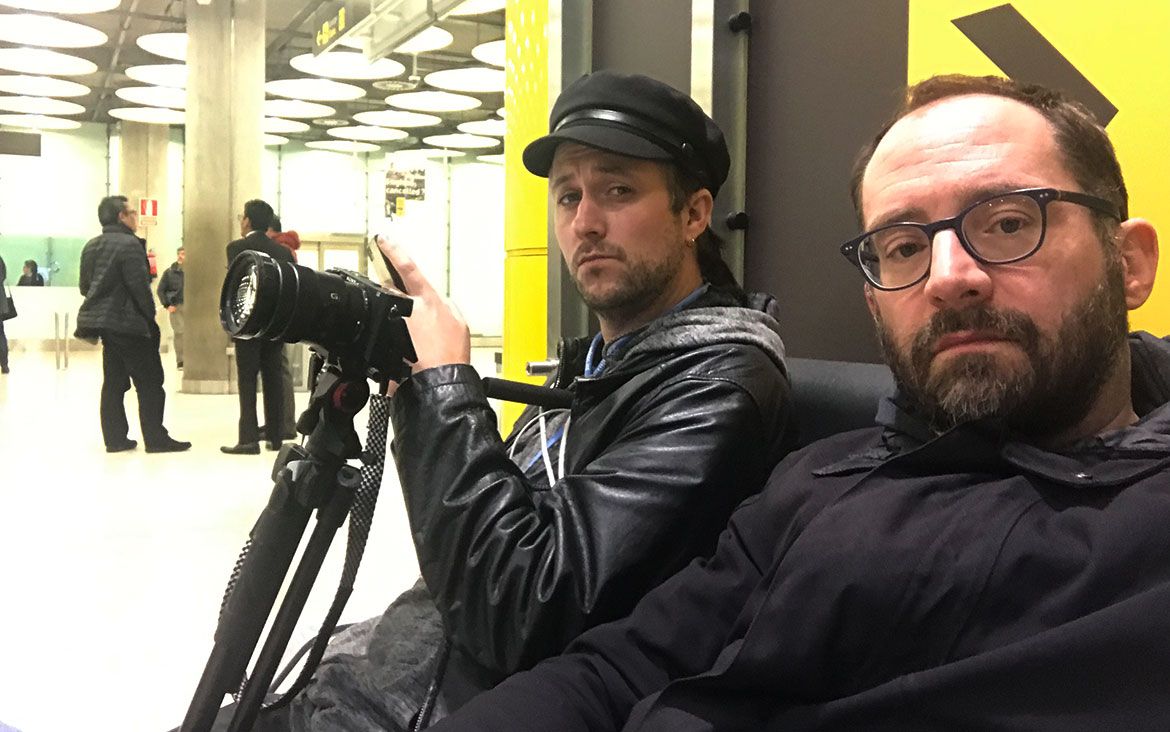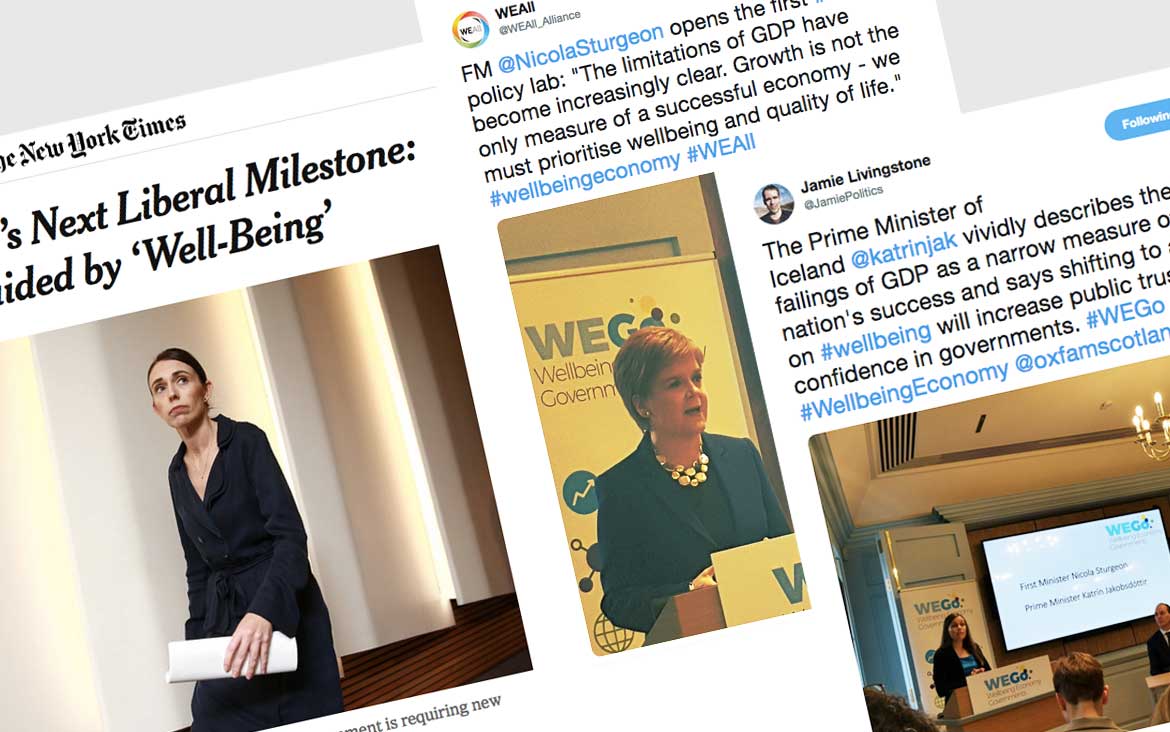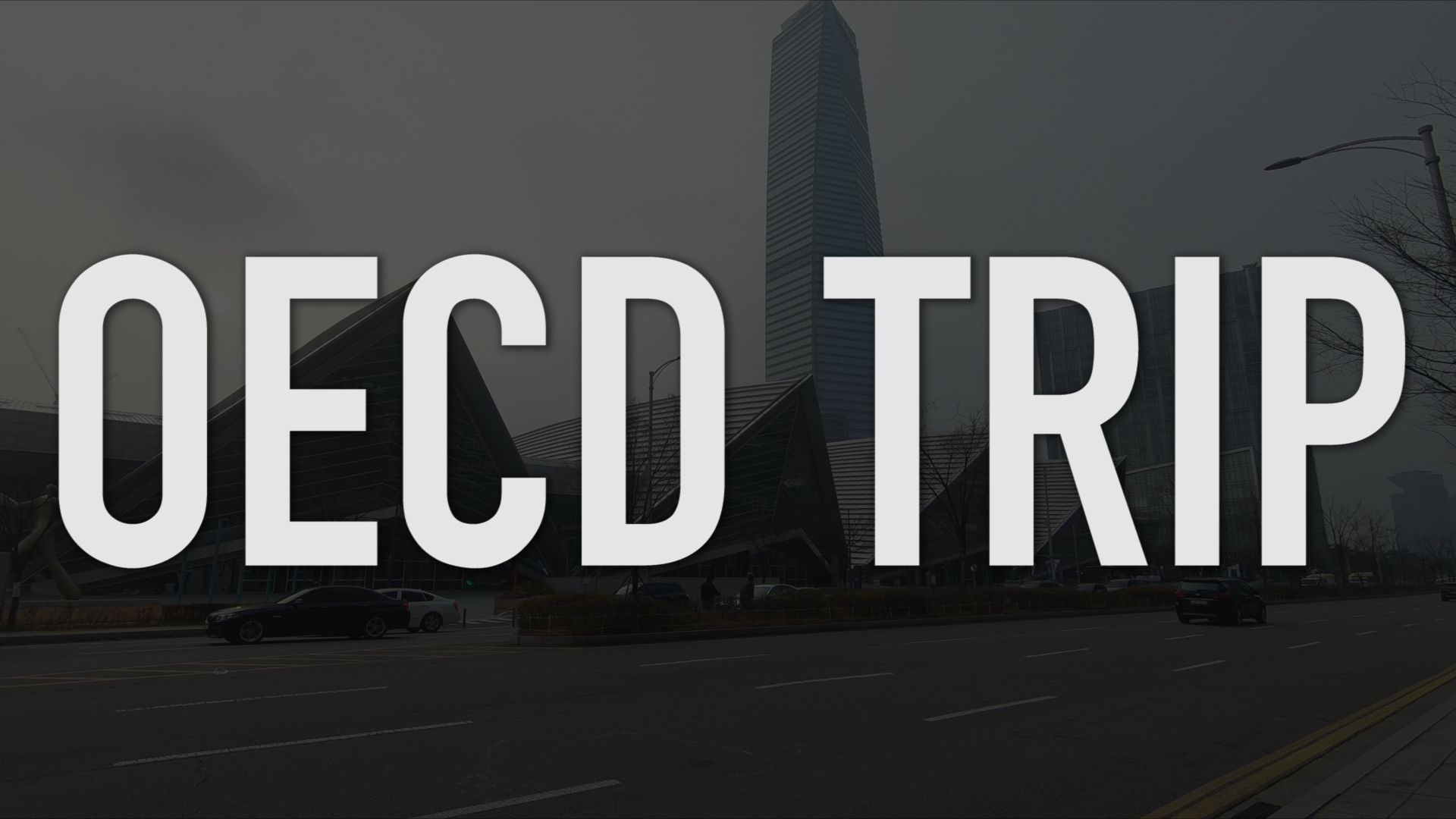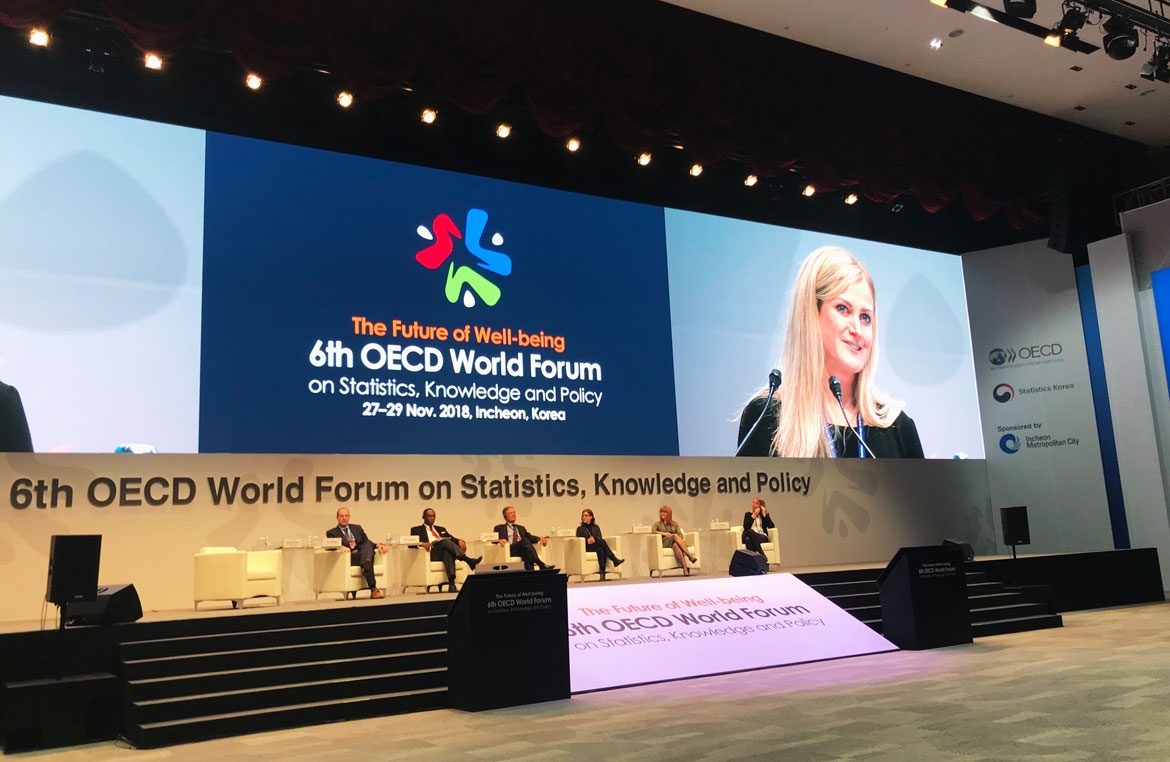The development of this film project in 2019 was rather remarkable.
Our stories and protagonists took to the global stage!
Originally, we thought the final chapter in our story about the Wellbeing Economy Governments was going to be the big OECD conference in South Korea where the initiative was officially launched and publicly announced for the first time. But that event felt somewhat anti-climactic: It was a so-called “breakfast session” — very early in the morning, in a small room, with hardly anyone attending. And at the time, we asked ourselves: This is supposed to be the big breakthrough?
It seemed a little like the project had failed as it was succeeding.
But it turns out: A small launch can still lead to a big change. In the following months, all kinds of little things were happening in the three WEGo countries, and also between them. And then, another few weeks later, the big news broke that Nicola Sturgeon, the Scottish First Minister, was announcing and explaining the WEGo initiative from the TED stage. To this day, her talk has been watched over 1.7 million times — and that does look a lot more like the big event that we would have hoped for. And then towards the end of the year, Icelandic prime minister Katrín Jakobsdóttir gave a speech about the initiative in London, which got the BBC interested, and which finally even led to a brief radio interview I gave to the BBC about the WEGo initiative.
Lorenzo’s story also took an unexpected turn around the middle of the year — he was promoted from Vice Minister to Minister of Education in the surprisingly formed new PD/5-Star government. In this role, he made waves in Italy, he got plenty of pressure from many sides, his policies made him unpopular with many people — as he is proposing uncomfortable solutions to really transform the Italian society for the future, while he also got international headlines for his push to have Italian schoolchildren taught about sustainable living and the climate in all classes starting with the coming academic year.
All this culminated in him being invited to the Climate Conference in Madrid and to an audience with the Pope. (We were there with the camera for the former, but not for the latter.) And now, just before the end of the year he resigned from his job as minister. Which came as no surprise to us — on the contrary. But the background to his resignation doesn’t belong here, it’ll be in our film.
The key thing for us is that we were very lucky — which is a requirement for any documentary film project: When we met Lorenzo, he was not yet a member of the Italian parliament, and then he transformed into an internationally respected politician in under two years. When he resigned, the news was reported around the world. How often does the world take an interest in an Italian Minister of Education who has been in office for only a few weeks?
We found powerful partners!
Around the middle of the year we met a director and producer who is very well established in the German film industry and who quickly warmed to our project. In November we signed an agreement according to which we will finish and market the film together with his company. For the development of our film, the second half of the year was characterized by getting to know and discussing the film project with our new partners. In our exchanges we thought and learned a lot about how our film can work, how we should structure it and what the focus should be. This was enormously helpful for our understanding of what kind of film we are making. But it also took time, of course.
So … we are looking very much forward to an eventful year 2020 in which we will launch into the next phase of the production. Carving out a compelling story from all the material that we have collected. Happy New Year everyone, and wish us luck!




